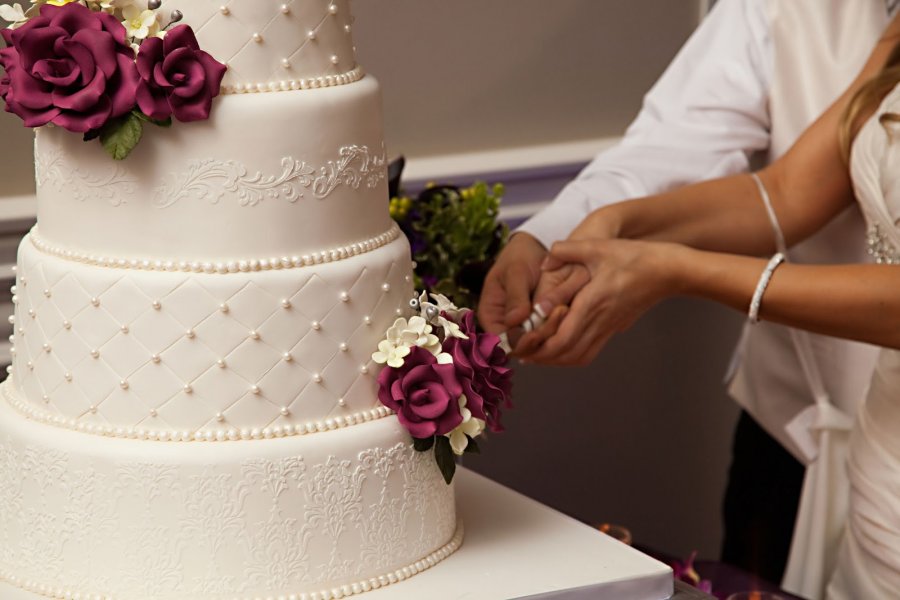On July 7, 2021, my husband and I celebrated our 20th wedding anniversary. Every year that date approaches, I always wake up thinking, “How did we even do this? How did we even survive?”
A thought never lasts more than a few seconds. This is because over the past 20 years we have spent most of our anniversaries surrounded by family members. So even if I wanted to marinate on that thought, celebrating with others has always been the focus.
However, over the past two years, thanks to the global pandemic, I have had a little more time to reflect on how our marriage has managed to survive.
At ages 27 and 23, my husband and I were brought together by mutual friends and family in a traditional Indian arranged marriage. Arranged marriages are all we’ve ever known. Generations of people before us made it look successful and even easy. And since this existing formula has worked for centuries, I didn’t think it would be difficult for us either.
But that’s the way it was. The culture and community that shaped him and me – and the script that came with it – didn’t seem to work for us. Or, to be more precise, it didn’t work for me.
Especially in the early years of our marriage, I struggled and floundered and wondered if it would be easier to just get a divorce. It was hard and painful and there seemed to be no reward in sight.
Our romantic relationship looked nothing like the Indian movies where a boy meets a girl, they fall in love and run under the trees together. And it wasn’t like our married peers either, who seemed to get along a lot better than us.
In our Indian Christian community, our social caste and our generation, marriage is arranged by parents, preferably between a boy engineer and a girl engineer, or a boy doctor and a girl engineer.
After the couple get married, both partners continue to work. Then, about a year later, with God’s help, they have a child. Then they buy a house or their parents give it to them. And then the grandparents or a nanny take care of the child. With each step of the formula, life should move smoothly.
Our lives might have looked remarkably similar, but we decided to complicate things by packing our bags and moving to the United States. This is where the real work of our marriage began. Without a maid to take care of the house and without a nanny or grandmother to take care of our children, we had to learn how to manage our relationships and families on our own.
We didn’t have our family’s natural enclosures surrounding us and our vast Indian community didn’t help us balance the arguments, disagreements, and spats that were destroying our relationship.
We were in our 20s, we had two children and we lived in a country that was so different from the one we were familiar with. On the outside it seemed like we had the perfect life, but on the inside it was a different story.
I have questioned everything that has been expected of me since I was 22. The formula didn’t work, so why was I still involved in this relationship? However, even in my young faith, I knew that this way of thinking was wrong. I knew that for years I had been trying to handle this marriage on my own, and it was time for me to give up.
Twenty years later, I now know that God works in mysterious ways, and He taught me some life-changing lessons that changed my view of arranged marriage and marriage in general.
- The purpose of marriage is to make us holy
In his book “Sacred Marriage”, Gary Thomas asks, “What if God created marriage to make us holy more than to make us happy?”
It challenged everything I knew about marriage. It was a profound fundamental shift in my way of thinking that forced me to struggle with many aspects of my early formative years.
I may not have been taught that marriage is meant to make us happy, but it showed up in the culture and society that shaped me. And no one ever told me that holiness is an integral part of marriage.
As for me, God was owed me. If I did everything right and was an ideal, obedient wife, then it was my right to be happy. Moreover, my husband was indebted to me for making me happy no matter what.
In many ways, my marriage was charming. But we were two flawed, broken people who did not understand what it means to live under the rule of God, who calls us to be holy because He is holy (1 Pet. 1:15-16).
As I began to look at my marriage as a way for God to cleanse me of my selfishness and immaturity, I learned the deeper truths and mysteries He has in store for us as couples.
It’s worth noting that I’m not advocating staying in a situation of violence. Anyone trapped in domestic violence should seek help.
God’s heart is never intended for His people to suffer any form of violence. But for the rest of us, holiness is still a requirement.
- Our culture shapes our expectations of marriage
Our upbringing, society and culture have shaped what my husband and I have come to expect from marriage.
Although we belonged to the same caste and had similar origins, we were brought up very differently and had different expectations of the “table”. I felt awkward because I didn’t fit into the expected mold – and I wasn’t entirely sure what I was bringing to our relationship.
“Our culture says that the feelings of love are the basis for the actions of love,” writes Tim Keller in The Meaning of Marriage. “And of course it could be true. But it is more correct to say that actions of love can consistently lead to feelings of love.” Keller compares marriage to a kind of spiritual friendship that “willingly helps to know, serve, love each other and become more and more like God.”
I didn’t start with a feeling of romantic love but I got introduced to the discipline of love. I began to remind myself that regular acts of love would eventually lead to feelings of love.
Through this process, I learned to surrender and trust God. I needed to come to terms with my discomfort, let go of my control and let Him guide me. I learned to recognize my cultural expectations. And once I was able to let them go, I was free to discover what God was trying to teach me through my marriage.
Letting go of what my culture expected of me and turning to what God expected of me began to radically change my expectations of marriage.
- The Holy Spirit works in ways we cannot do on our own
There came a point in my marriage where I felt like I couldn’t move forward anymore, and I didn’t want to. It was too hard. I tried to quit everything.
I remember one morning I sat and cried on the floor, asking God for strength. Instead, I chose to give up my will and my pride to allow Him to carry out His plan for us.
We both needed patience, gentleness, kindness and self-control. But for that, we needed the Spirit of God to work in our marriage.
Love tends to be at the very bottom of the list in arranged marriages. Honor and duty to your spouse and your spouse’s family usually dictates the beginning of an arranged marriage. This worked for me. But did love grow? Yes, the Spirit of God has nurtured in me a passion for the Lord and a love for my husband that can only be called supernatural—a love that grows out of embers and becomes a mighty flame.
John Piper’s definition of love from his book God’s Desire is “overflowing with joy in God that gladly meets the needs of others.” God chose us before creation and loved us. His love changes us and enables us to love the people around us.
Agape love comes from the covenant we make with God to love one another well. I needed Him to examine my heart and test me, purify me with fire and continue to remove the dross (1 Pet. 1:6-7). And in the process, God used my marriage to bring me closer to Him.
My husband and I often talk about how our marriage has developed over the years. To be honest, he had more faith that it would survive than I did. I didn’t think we could make it. There were many times when I lost hope. But God always met me in those times of despair, giving me the faith and spiritual support I needed to persevere.
A few years ago, when my husband and I visited India, one of our family members looked at us and said: “You both have changed from the first years of your marriage. Something has changed”. Although the difference was never explained to me, I knew what it was. This comment was a meaningful gift that I will never forget and that points to the enduring faithfulness of God.
Sherine Joseph Rajadurai (Third Culture Indo-Christian, Dallas Theological Seminary graduate) christianitytoday.
Source: 3 урока любви от брака по договоренности | Статьи на inVictory







